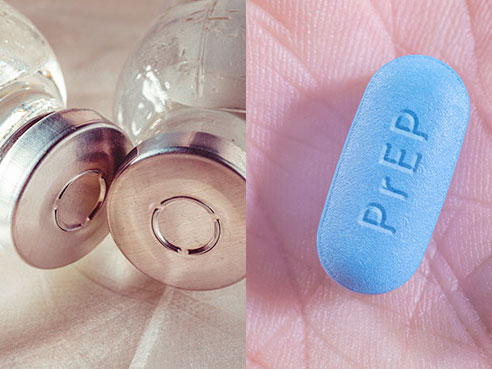 UAB launches clinical trial to evaluate efficacy and safety of injectable PrEP versus daily oral medication for HIV prevention.The University of Alabama at Birmingham is participating in a groundbreaking clinical research study launched by the National Institutes for Health-funded HIV Prevention Trials Network to evaluate the efficacy and safety of injectable Cabotegravir as pre-exposure prophylaxis (PrEP) versus a daily oral medication to prevent HIV acquisition.
UAB launches clinical trial to evaluate efficacy and safety of injectable PrEP versus daily oral medication for HIV prevention.The University of Alabama at Birmingham is participating in a groundbreaking clinical research study launched by the National Institutes for Health-funded HIV Prevention Trials Network to evaluate the efficacy and safety of injectable Cabotegravir as pre-exposure prophylaxis (PrEP) versus a daily oral medication to prevent HIV acquisition.
UAB’s Alabama Vaccine Research Clinic is recruiting HIV-negative men and transgender females who are at risk for HIV infection, have sex with men, are age 18 years or older, and are generally in good health for participation in the study locally known as IMPrOVE and nationally recognized as HPTN 083.
The current drug used in HIV prevention is a daily oral regimen of the HIV-1 treatment drug, Truvada. To be at its most effective, Truvada must be taken every single day, preferably around the same time.
“PrEP demonstrably works, but adherence to an oral medicine remains a challenge and is critical for HIV prevention,” said E. Turner Overton, M.D., co-director of the UAB AVRC. “The potential to have a long-acting injectable medication will greatly enhance our ability to prevent new cases of HIV/AIDS in Alabama and beyond. We are excited to be a part of this groundbreaking prevention trial.”
The goal for the use of the injectable PrEP being evaluated as part of IMPrOVE/HPTN 083 is to prevent HIV infection without having to adopt a daily oral regimen and has the potential to increase the availability of HIV-prevention choices while promoting the acceptability of preventive sexual health practices.
HPTN 083 will enroll approximately 4,500 HIV-uninfected individuals globally from the United States, Argentina, Brazil, Peru, India, Thailand, Vietnam and South Africa.
“Ending the AIDS epidemic in Alabama is within our reach,” Overton said. “If we partner with the community, we can make HIV infection a rare occurrence.”
For more information or to see if you are eligible for this study, please contact the Alabama Vaccine Research Clinic at UAB via phone at (205) 975-2839 or on the web.